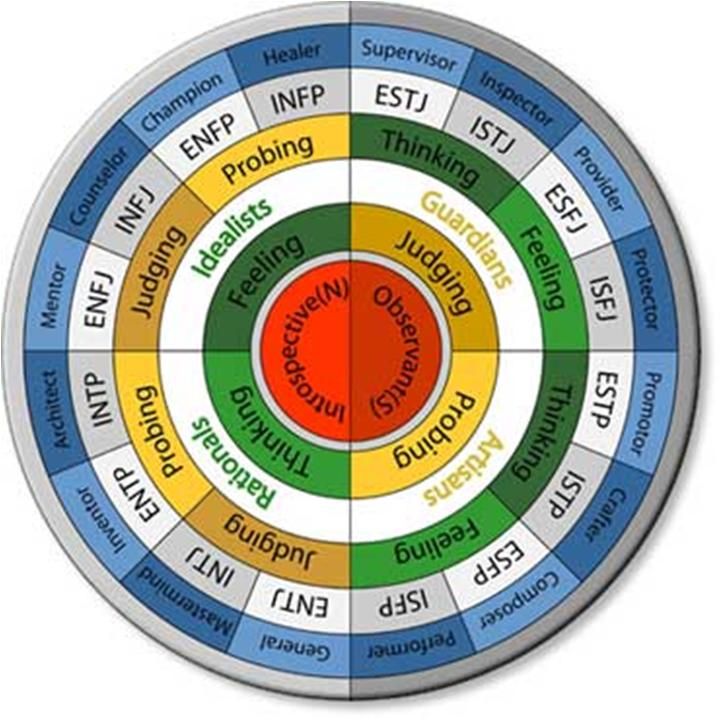What your personality type says about you
Here's what your Myers-Briggs personality type says about you
MBTI, or Myers-Briggs Type Indicator, isn’t a new personality test — in fact, it was developed by Isabel Briggs Myers and Katharine Cook Briggs in the early 1960s. But its recent explosion on social media has turned it into somewhat of a “scientific” (or more accurately, pseudoscientific) version of asking someone for their zodiac sign. What are the basics, and what does it all mean?
MBTI is really based on function, with things like extroverted intuition and introverted sensing. But these can be confusing, and when it comes to the pop-psychology aspect of MBTI, is often not really what people are talking about. Instead, it’s simplified into eight letters, of which you receive a combination of four.
The options are being either introverted or extroverted, intuitive or sensing, thinking or feeling and perceiving or judging — these are represented by I or E, N or S, T or F and P or J. And even though Myers-Briggs is a personality indicator, these types only have a little to do with your personality, and have more to do with how you process information and behave.
For example: Introversion and extroversion aren’t about whether or not you love to go out and party or stay at home with a book, but rather about how you feel most comfortable and where you feel you learn the best and get the most energy.
Someone who’s introverted would get their energy and learn the best on their own, would probably be described as “reserved” and might have trouble getting outside of their own head to acknowledge the outside world. And someone who’s extroverted would thrive learning in group settings, might not think as deeply about things before doing them (or just be easily excitable) and thrive in new, exciting situations.
To find out your type, there are plenty of quizzes online to help you. 16Personalities is popular, but is considered to be pretty unreliable in terms of its quiz. Though, it has some great explanations you can find about the types below to find expansions on how you could act in the workplace or a relationship.
Most people recommend you read about MBTI types and type yourself, but if you’re really desperate to have a site tell you, I recommend Truity’s quiz.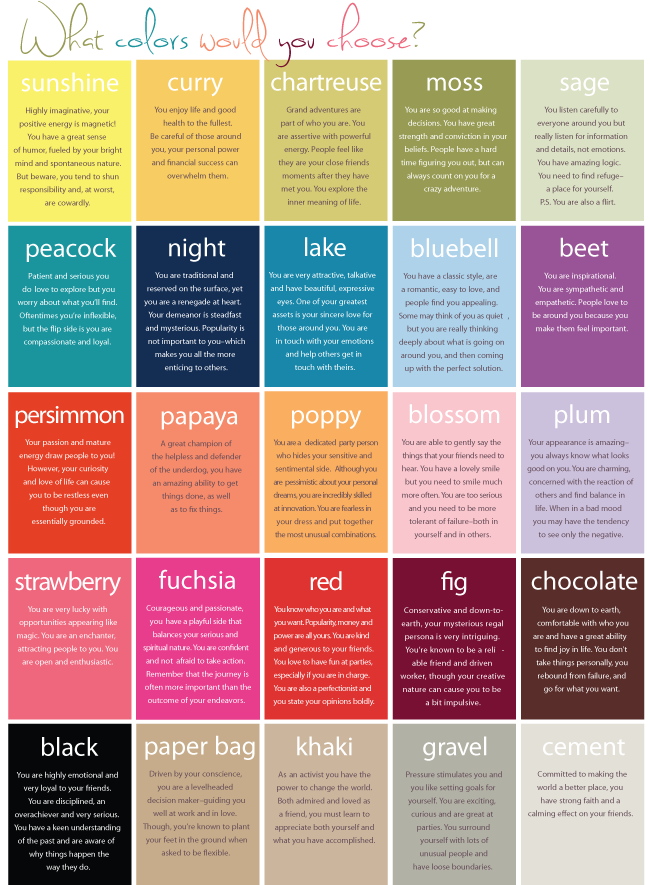
Here's what each personality type says about you in a nutshell:
INTJ
INTJs are introverted, intuitive, thinking and judging. They love learning and gaining new knowledge, but can be a little cold, especially when it comes to new people. They value being rational, fair and most importantly, correct. They’re independent and can give great logical advice to people that will help them in the long run, but also might come across as hypercritical, even of loved ones.
INTP
INTPs are introverted, intuitive, thinking and perceiving. They’re ultra-logical and can solve any puzzle, but can tend to get too stuck in their own idea of what’s right and become dissatisfied with the world around them — if they’re not already disconnected from it, that is.
Open-minded and curious, INTPs love to follow new pursuits, but can be impatient if it doesn’t click right away. These perfectionists struggle with things not being done right.
ENTJ
ENTJs are extroverted, intuitive, thinking and judging.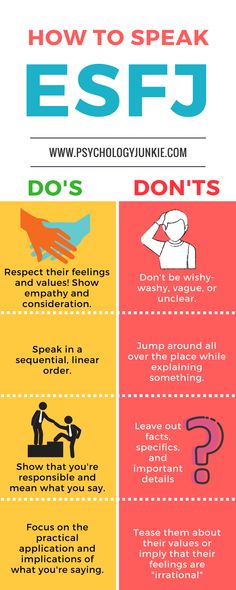 An ENTJ is a leader in pure stereotype of what a leader means. They’re confident, quick-thinking and charismatic, but can quickly fall into a domineering “my way or the highway!” approach that leaves a bad taste in people’s mouths.
An ENTJ is a leader in pure stereotype of what a leader means. They’re confident, quick-thinking and charismatic, but can quickly fall into a domineering “my way or the highway!” approach that leaves a bad taste in people’s mouths.
That being said, they can accomplish any task and are full of ambition, but their ability to handle emotions, both their own and other people's, can be lacking.
ENTP
ENTPs are extroverted, intuitive, thinking and perceiving. ENTP is also the ultimate devil’s advocate. They like to see all sides of a situation … before arguing that their side is correct, of course. ENTPs can be impractical and unfocused, but when their brilliance strikes (and it usually does) their ideas and passion could move mountains. They can also be a little insensitive despite their charisma, and can flip back and forth between expressing intolerance for others and charming them.
INFJ
INFJs are introverted, intuitive, feeling and judging. These creative, sensitive types have a strong moral compass that leaves them itching to do the right thing, but they’re incredibly sensitive to the principles and ideas that motivate them to do that work being criticized.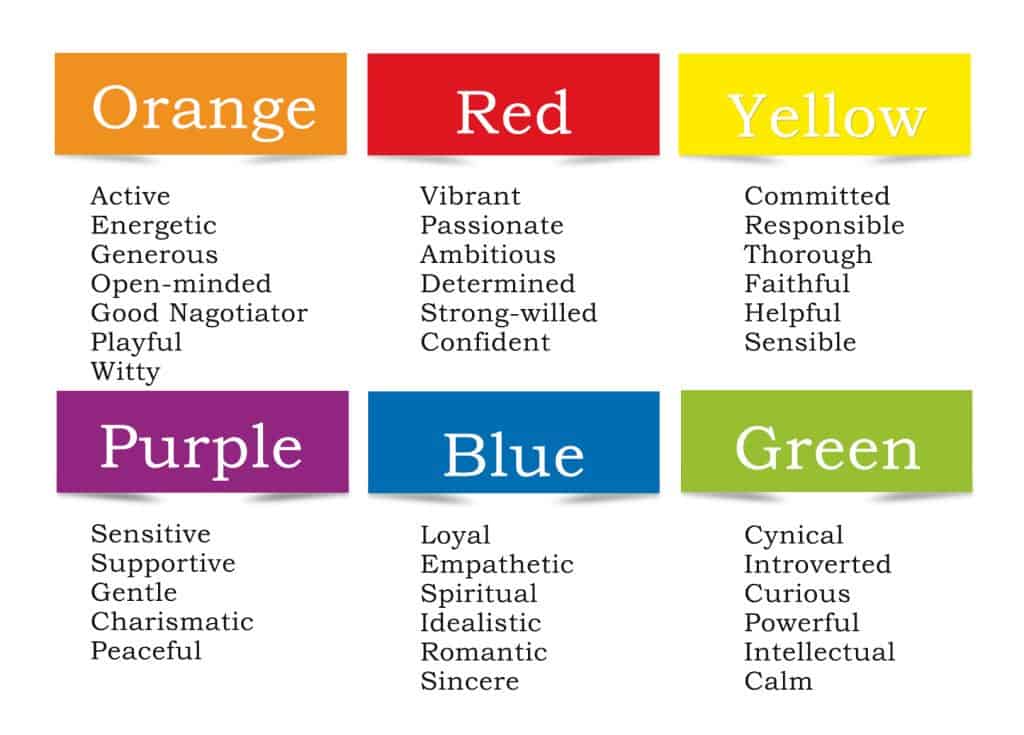
INFJs are passionate dreamers, but easily get discouraged when things don’t go right and quickly burn out. They’re quiet but care about others, both emotionally and practically, even if sometimes their imagination gets ahead of them.
INFP
INFPs are introverted, intuitive, feeling and perceiving. INFPs are empathetic idealists, but they’re also incredibly vulnerable. They’re some of the most sensitive people around, and struggle with people-pleasing as well as their own criticism, which can make working with them difficult and frustrating.
Kind and creative, INFPs have a strong passion to do good for others in any way they know how. While sometimes their tendency to get overemotional and self-critical can be frustrating, INFPs just want to help.
ENFJ
ENFJs are extroverted, intuitive, feeling and judging. If there’s one thing an ENFJ wants to do, it’s get involved. Reliable, kind-hearted and hard-working, the ENFJ seems to never stop chugging, but their tendency to take on other people’s problems (even if you don’t ask them to) can lead to burnout. They’re intensely idealistic and can condescend people that don’t follow that worldview, seeing them as people who just need to be taught the right way of thinking.
They’re intensely idealistic and can condescend people that don’t follow that worldview, seeing them as people who just need to be taught the right way of thinking.
ENFP
ENFPs are extroverted, intuitive, feeling and perceiving. Cheerful and playful, ENFPs see the world as a place full of shiny colors and new things to experience. They’re bright, fun conversationalists who are enthusiastic, caring and considerate. But their lack of focus, restlessness and sometimes over-enthusiasm can be overwhelming.
ISTJ
ISTJs are introverted, sensing, thinking and judging. In a crisis, an ISTJ is who you want around. Direct and logical, an ISTJ can command a room with their presence and use their vast swaths of knowledge to help in any situation. The downside? If help requires breaking the rules, they won’t do it, and when it goes wrong, they’ll blame themselves. Though sometimes insensitive, you can always count on an ISTJ for honesty.
ISFJ
ISFJs are introverted, sensing, feeling and judging.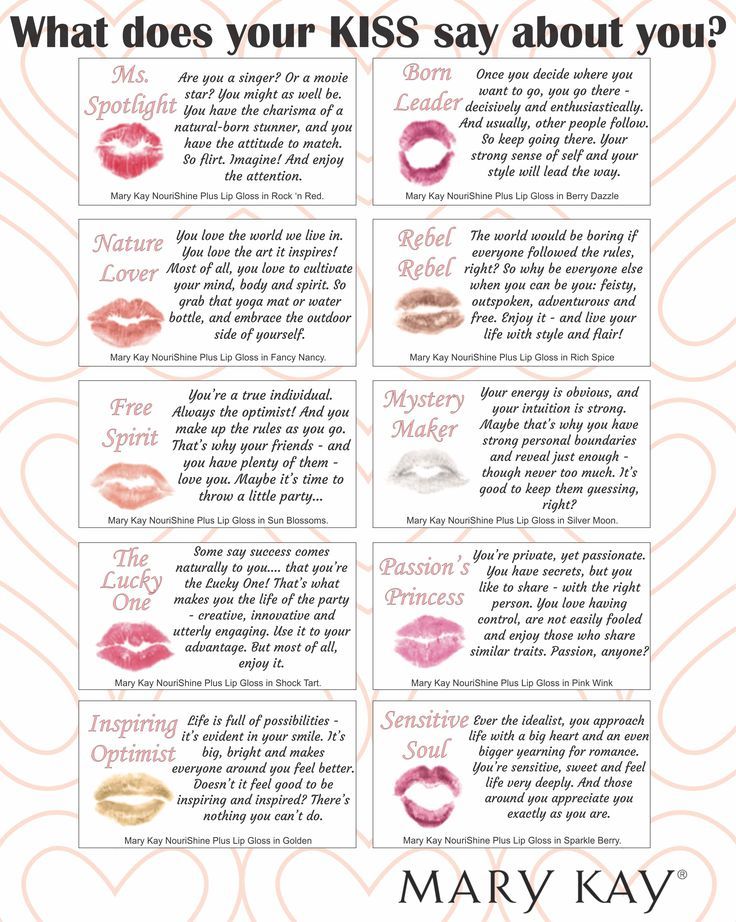 Dedicated and protective, ISFJs are committed to helping loved ones and offering support to as many people as they can, as often as they can. Though logical, ISFJs have an imagination typically reserved for intuitive types. Overextending themselves can be a problem for ISFJs, and when this does happen, they’ll often repress it and become stressed or passive-aggressive. ISFJs are also incredibly and stubbornly resistant to change.
Dedicated and protective, ISFJs are committed to helping loved ones and offering support to as many people as they can, as often as they can. Though logical, ISFJs have an imagination typically reserved for intuitive types. Overextending themselves can be a problem for ISFJs, and when this does happen, they’ll often repress it and become stressed or passive-aggressive. ISFJs are also incredibly and stubbornly resistant to change.
ESTJ
ESTJs are extroverted, sensing, feeling and judging. It’s easy to rely on an ESTJ, as they’re notoriously stable and dependable people. Their organizational skills and love for order is helpful, and their patience gives them an edge over many other thinkers. But, they can be judgy and rigid, and oftentimes have trouble relaxing or being their true selves without worrying about how others perceive them. An ESTJ might be more worried about looking smart than embracing their natural intelligence.
ESFJ
ESFJs are extroverted, sensing, feeling and judging.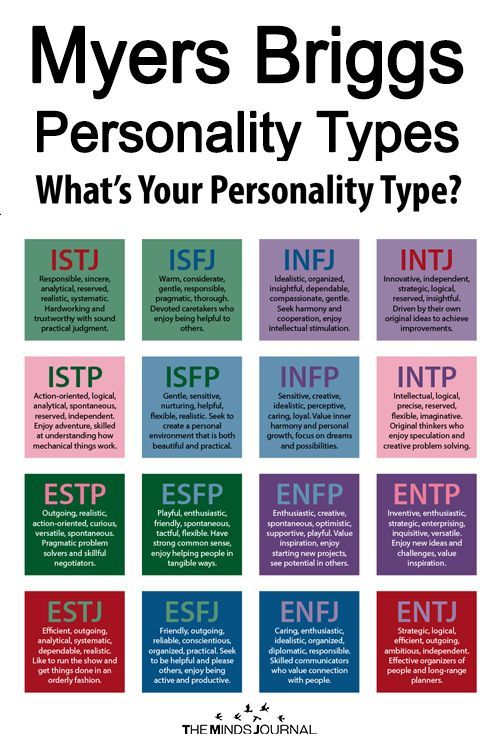 The helpers of the MBTI, ESFJs are always willing to lend an ear or a hand to solve problems. More practical than many feelers, ESFJs are excellent planners and doers with even better people skills and vast amounts of warmth and sensitivity. But, they can also be inflexible, over-concerned about other people’s perceptions of them and incredibly needy and vulnerable to criticism. Negativity, from themselves or elsewhere, can lead to a complete shutdown.
The helpers of the MBTI, ESFJs are always willing to lend an ear or a hand to solve problems. More practical than many feelers, ESFJs are excellent planners and doers with even better people skills and vast amounts of warmth and sensitivity. But, they can also be inflexible, over-concerned about other people’s perceptions of them and incredibly needy and vulnerable to criticism. Negativity, from themselves or elsewhere, can lead to a complete shutdown.
ISTP
ISTPs are introverted, sensing, thinking and perceiving. Energetic and willing to help, an ISTP's inclination to solve problems correctly and quickly makes them another type you’d want to help you in the event of a disaster. But while many other helpers stay within boundaries, ISTPs actively decide they want to break them. They’re easily bored and prone to risky behavior. They’re also incredibly reserved and don’t always do the best with the emotional aspect of things.
ISFP
ISFPs are introverted, sensing, feeling and perceiving.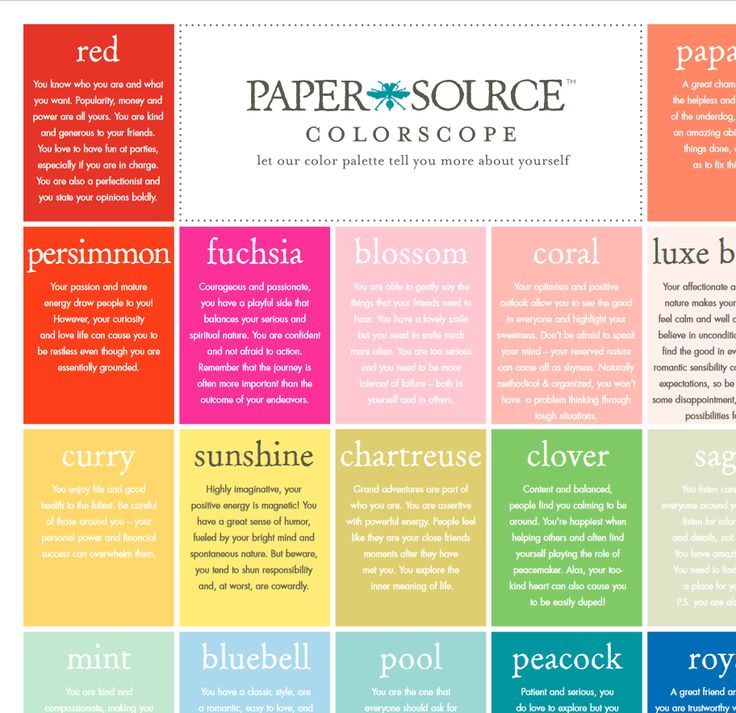 Charming and passionate, an ISFP makes for an excellent friend and companion. ISFPs are warm and creative, but can be easily stressed out and prone to being a little too competitive, and a little too hard on themselves when they lose. Rocky self-esteem aside, ISFPs often are artistically talented or otherwise skilled creatively.
Charming and passionate, an ISFP makes for an excellent friend and companion. ISFPs are warm and creative, but can be easily stressed out and prone to being a little too competitive, and a little too hard on themselves when they lose. Rocky self-esteem aside, ISFPs often are artistically talented or otherwise skilled creatively.
ESTP
ESTPs are extroverted, sensing, thinking and perceiving. While an ESTP will always be direct with you and tell you what they think, they have a tendency to be insensitive and struggle to focus on the bigger picture, often honing in too much on details they think need fixing. Paying attention and rule-following also aren’t really skills of the ESTP, but their original thought process and ability to make astute observations help them.
ESFP
ESFPs are extroverted, sensing, feeling and perceiving. ESFPs are bold, original and sometimes attention-seeking. They love being around other people and despise conflict. But, ESFPs are also easily bored and can’t focus or plan on much of anything. Despite this, they’re fun-loving and true showmen, making them always entertaining and fun to be around even when practicality fails — though ESFPs aren’t dreamers, they’re doers, which takes some measure of this.
But, ESFPs are also easily bored and can’t focus or plan on much of anything. Despite this, they’re fun-loving and true showmen, making them always entertaining and fun to be around even when practicality fails — though ESFPs aren’t dreamers, they’re doers, which takes some measure of this.
Knowing your personality type isn't only a fun way to connect with others, but it's also a great way to gain real insights into your strengths and weaknesses. So, if you haven't already taken the test, be sure to do so!
How Other People See You, Based On Your Personality Type
Have you ever wondered if your personality type impacts the way other people see you? While each of us has unique traits and qualities that have nothing to do with type, there are certain themes and characteristics that each type tends to display. Let’s take a look at what those are for you!
Not sure what your personality type is? Take our new personality questionnaire here. Or you can take the official MBTI® here.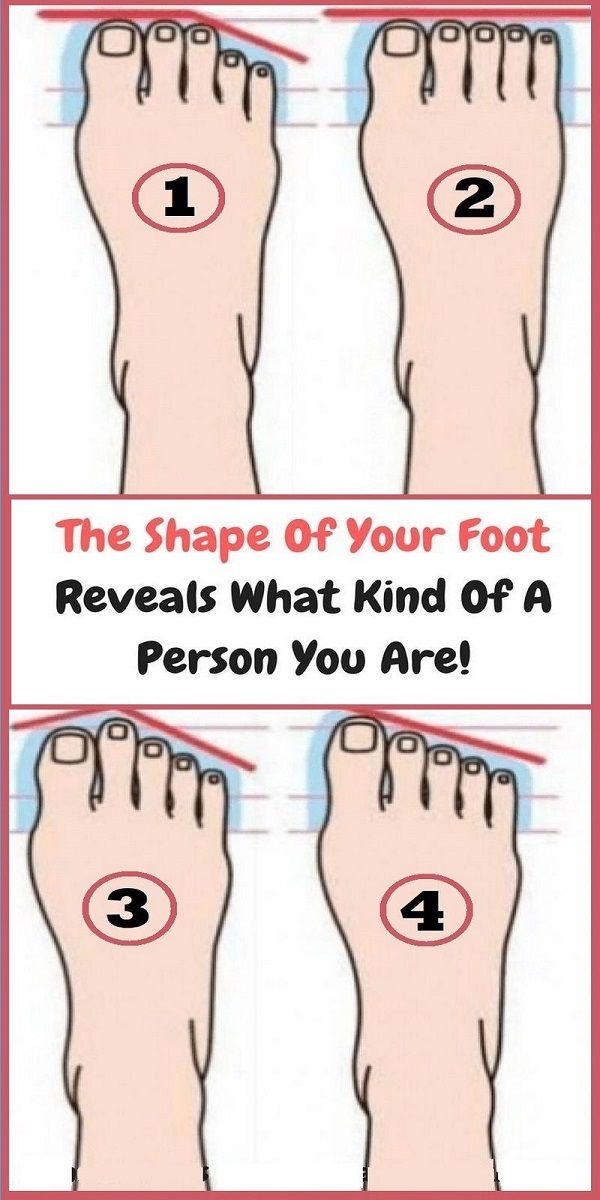
Estimated reading time: 13 minutes
Here’s How Others See You, Based On Your Personality TypeThe ENFPENFPs are usually seen as lively, friendly, and open-minded individuals. They bring curiosity and enthusiasm to most encounters and this tends to draw new people to them wherever they go. Simultaneously, they are usually deeply honest and crave a great deal of authenticity in their friendships.
Because ENFPs like an ever-changing, evolving lifestyle, they tend to appear free-spirited and restless. And for all their open-minded, friendly characteristics, they can become deeply passionate when one of their values is threatened.
Healthy ENFPs are seen as:
– Friendly, insightful, compelling
– Spontaneous and creative
– Generous and curious
Unhealthy ENFPs are seen as:
– Hyperactive or scattered – unable to focus
– Struggling to apply logic to their decisions and inspirations
– Frazzled and burned out from following too many paths and being unable to say “no”.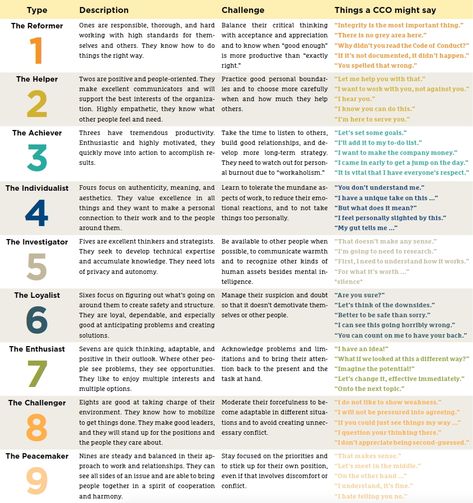
– Worn out from forgetting to take care of their physical needs
ENTPs are usually seen as energetic, curious, and spontaneous. They have a buzz of intellectual energy and a visionary nature that makes them intriguing to others. They are good at mobilizing people to participate in their vision and don’t mind instigating challenging or deep conversations as a way to debate ideas and pose new theories.
Because ENTPs use a process called introverted Thinking (Ti), they can become abrupt and intense when they challenge other people’s logic. They have a tendency to play devil’s advocate, and this can irritate some people, but it is usually a way for the ENTP to connect all the data points in their mind and find out if something is definitively accurate.
Healthy ENTPs are seen as:
– Lively, curious, innovative
– Autonomous and independent
– Insightful, challenging, and logical
Unhealthy ENTPs are seen as:
– Scattered – rushing from idea to idea without accomplishing anything.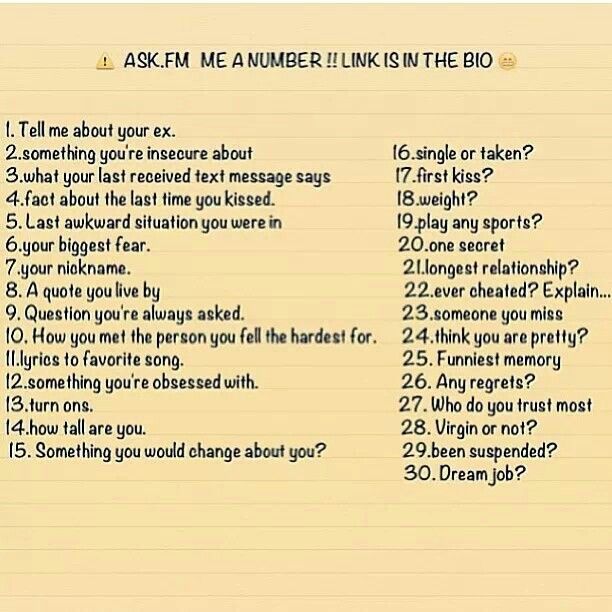
– Overly-challenging, abrasive, rude
– Physically burned out or unhealthy from forgetting to take care of physical needs.
INFPs are usually seen as private yet kind individuals. Because they value depth and authenticity to such a great degree they are usually selective about who they spend their time with. They often seem mysterious to others because a lot of their vivid, inner world is very private. They are often seen as imaginative, creative, and focused on a future or vision they’d like to see become a reality.
Because INFPs use extraverted Intuition (Ne) they tend to enjoy brainstorming or posing unusual ideas or theories with others. They like to imagine and contemplate “what if” scenarios and get excited by ideas and possibilities for the future.
Healthy INFPs are seen as:
– Introspective, sensitive, and empathetic
– Original and individualistic
– Open-minded yet complex and reserved
Unhealthy INFPs are seen as:
– Overly-withdrawn from people and the world around them
– Overly sensitive or easily offended
– Impractical – struggling to bring their ideas and goals into reality.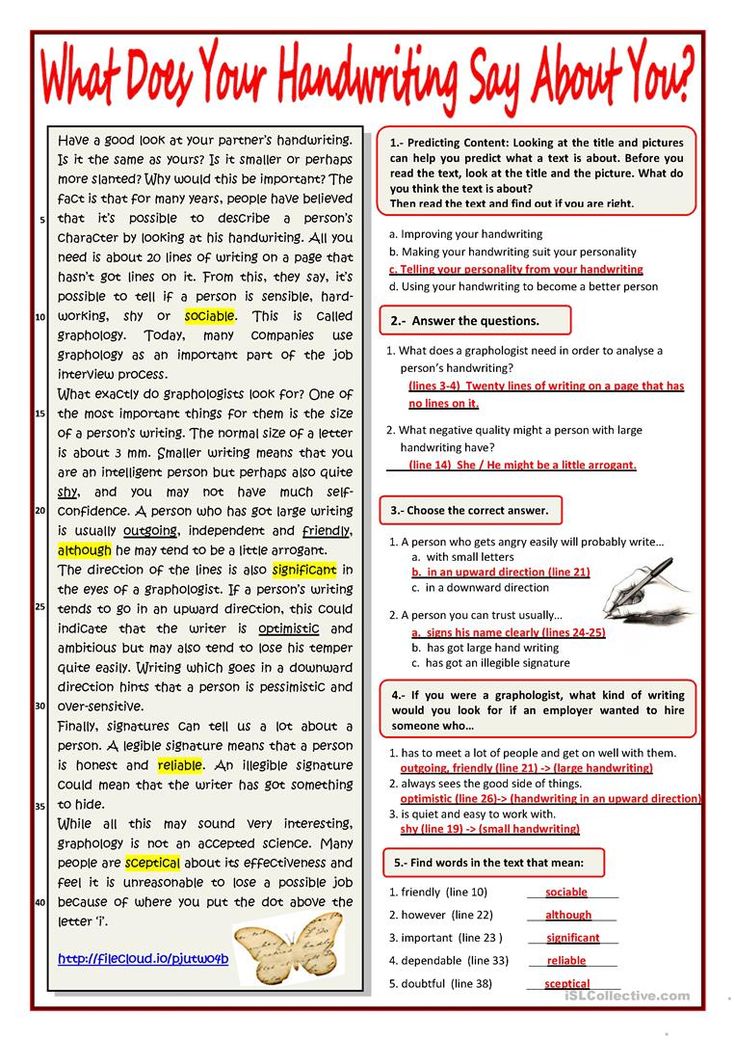
Read This Next: 10 Things You’ll Relate to If You’re an INFP
The INTPINTPs are usually seen as reserved yet curious individuals. They tend to dislike pushing themselves onto other people or delegating or controlling anyone. They tend to be absorbed in several interests at a time and can work with remarkable determination towards ideas that capture their interest. They are usually tolerant of people unless they are pushy, domineering, or their logic is too flawed for them to ignore.
Because INTPs use extraverted Intuition (Ne) they tend to enjoy brainstorming or posing unusual ideas and theories in conversation. They also have a knack for seeing surprising connections and inter-relationships between seemingly disparate events.
Healthy INTPs are seen as:
– Quiet, easy-going, and calm
– Independent and innovative
– Logical, studious, and curious
Unhealthy INTPs are seen as:
– Isolative, argumentative, and critical
– Cynical, pessimistic, and insensitive
– Impractical. May forget mundane duties like paying the bills or taking care of physical needs.
May forget mundane duties like paying the bills or taking care of physical needs.
ENFJs are usually seen as enthusiastic, friendly, and energetic individuals. They are very aware of the needs and feelings of other people and tend to have strong, inspiring communication skills. They are often good listeners and are attuned to unique gifts of individuals they speak to. They also tend to have clear, definitive values and opinions.
Because ENFJs are judging types, they like to have an organized world around them. This doesn’t mean their room will always be neat and tidy, but it does mean they like to have closure in relationships and clear plans. They don’t like ambiguity in their relationships and having a clear plan of action is important to them. They have a strong focus on the future and organizing their time to reach their goals.
Healthy ENFJs are seen as:
– Kind, compassionate, and tactful
– Expressive, responsive, and authentic
– Imaginative, strategic, and visionary
Unhealthy ENFJs are seen as:
– Jumping to conclusions too quickly.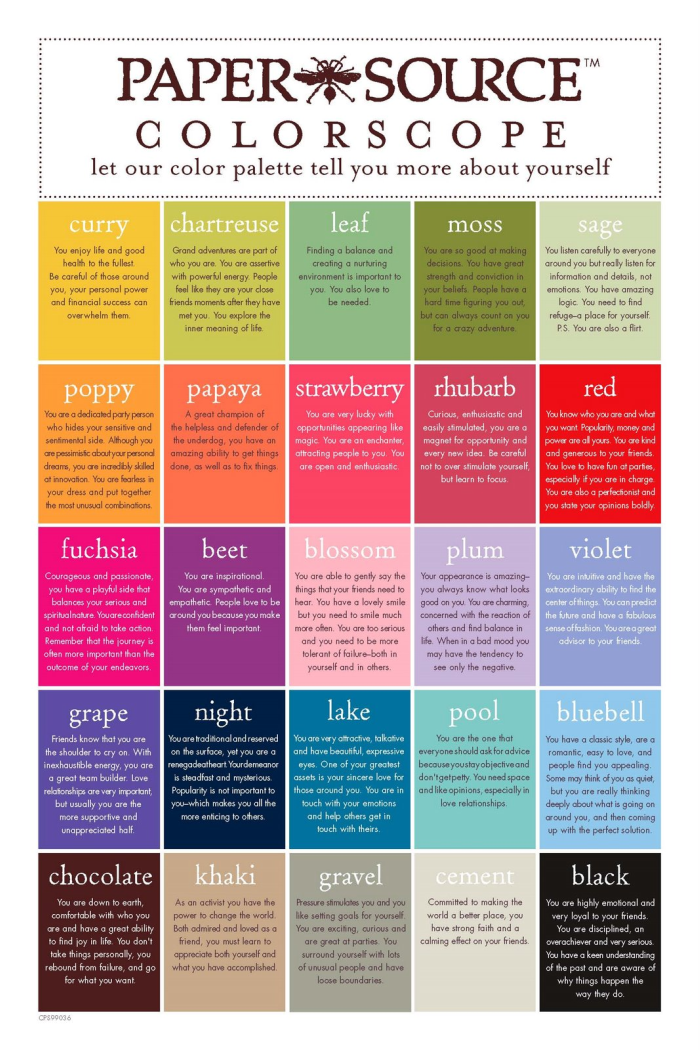
– Overbearing and overly-sensitive.
– Detail-blind. In an effort to reach goals, they ignore logical flaws or miss important details.
Read This Next: What ENFJs Do When They Get Really Stressed Out
The ENTJENTJs are usually seen as intelligent, visionary individuals who like to challenge ideas and theories to reach mutual understanding. They tend to enjoy a good debate because this allows them to bounce ideas off other people and find the truth or new insight. They are fiercely logical and tend to take charge of the conversation if no one else is doing so or if the topics revolve around mundane activities or details.
Because ENTJs are judging types they like to have an organized world around them. They like having a plan, making plans, and reaching conclusions. However, their intuition can draw them into wide-ranging discussions and explorations of various theories and abstract concepts.
Healthy ENTJs are seen as:
– Objective, fair, and logical
– Self-assured, directive, and challenging
– Hard-working, curious, and insightful
Unhealthy ENTJs are seen as:
– Critical and tactless, seeing other people’s needs as less important than their own.
– Intrusive and bossy. Giving orders and making demands without listening.
– Pushy about getting a job done without giving others enough time to process or prepare.
INFJs are usually seen as reserved yet compassionate and caring. Their intuitions are often kept to themselves unless they are with people they trust deeply. They tend to keep part of themselves hidden and may seem “difficult to know.” They usually listen more then they speak, unless the conversation is very moving or stimulating to them, in which case they can speak passionately for long periods of time, seeming more like extroverts than introverts.
Because INFJs have a driving desire to stay focused on the future and global perspectives they can seem distracted if they are involved in a conversation that is focused primarily on day-to-day details. They tend to use metaphor and analogy in their speech more than literal details and this can make them seem confusing to other types.
Healthy INFJs are seen as:
– Intense, authentic, and insightful
– Empathic and compassionate
– Creative, idealistic, and deep
Unhealthy INFJs are seen as:
– Unrealistic. They can be so wrapped up in their ideas that they lose focus on what is actually happening.
– Impractical and out of touch with what is actually possible.
– Pretentious and overly-sensitive.
Read This Next: 24 Signs You’re an INFJ, the Mystic Personality Type
The INTJINTJs are often seen as decisive, reserved, and intense. They tend to keep a lot of their creative visions to themselves unless they are with someone they really trust. What will be most obvious up-front is their ability to solve problems, see things objectively, and plan for the future. They can seem hard to get to know because they keep their emotions and insights internalized outside of very close relationships.
Because INTJs have a driving desire to explore new perspectives, particularly global perspectives, they usually get bored with small-talk or day-to-day conversation.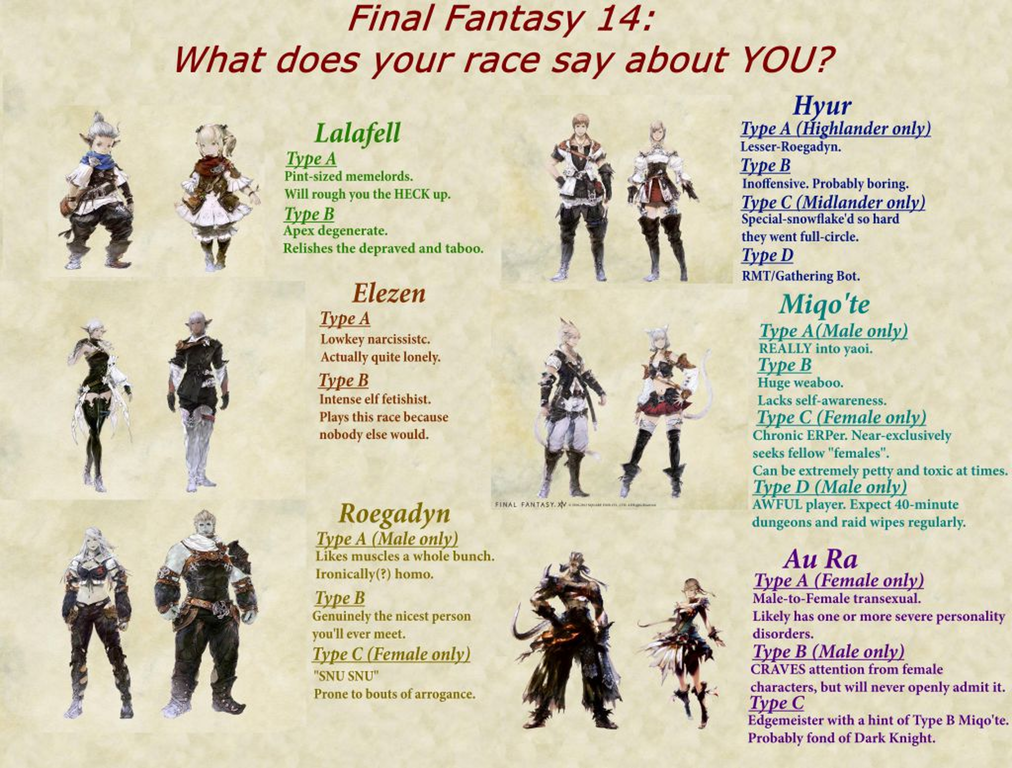 They may appear bored or else abruptly change the subject during these times.
They may appear bored or else abruptly change the subject during these times.
Healthy INTJs are seen as:
– Logical, knowledgeable, and insightful
– Conceptual, future-focused, and independent
– Private but open-minded
Unhealthy INTJs are seen as:
– Critical or condescending, especially to those who don’t share their vision.
– Tactless and blind to giving praise or affirmation to others.
– So focused on their vision that they miss practical realities and forget to take care of themselves.
Read This Next: 24 Signs That You’re an INTJ, the Strategist Personality Type
The ESFPESPS tend to come across as exuberant, lively, and easy-going. They are flexible, adaptable, and seldom plan ahead. They appear open to any opportunity or activity that life throws at them. Routine and structure irk them, so they’ll get irritated if they are feeling controlled by anyone.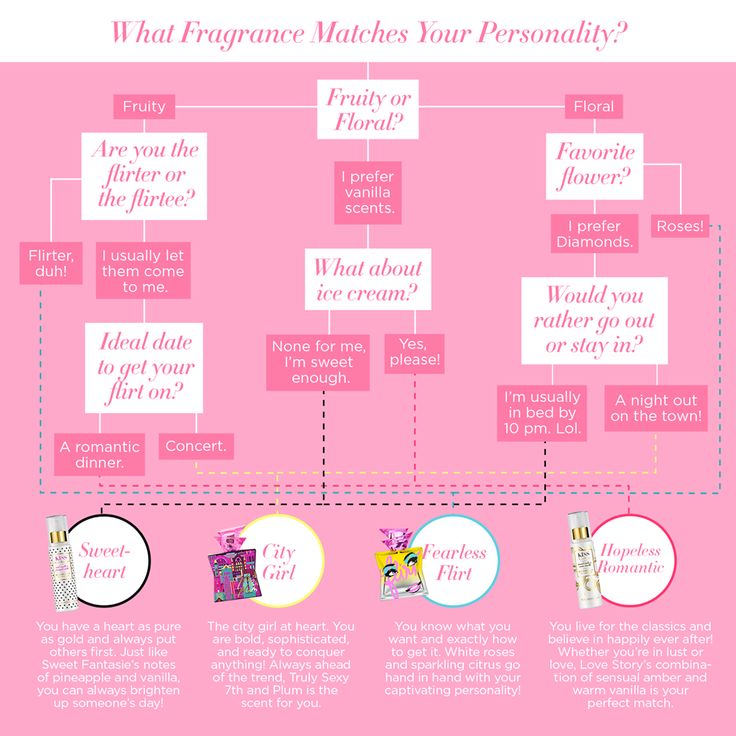 They seem full of adventure, fun, and good humor.
They seem full of adventure, fun, and good humor.
As extraverted Sensors and introverted Feelers, ESFPs like to interact and engage with their environment as much as possible. They tend to be physically active and expressive. They also are guarded about their deeper values but crave authenticity in their own actions and the actions of others. They are people who “keep it real”.
Healthy ESFPs are seen as:
– Resourceful, adaptable, and active
– Generous, optimistic, and sympathetic
– Observant, realistic, and specific
Unhealthy ESFPs are seen as:
– Distractable and overly-impulsive
– Over-sensitive and self-absorbed
– Putting enjoyment and fun over personal obligations and responsibilities
Read This Next: What It Means to be an ESFP Personality Type
The ESTPESTPs appear confident, energetic, and active. They like to be engaged and stimulated by their environment as much as possible and are always looking out for new opportunities and adventures.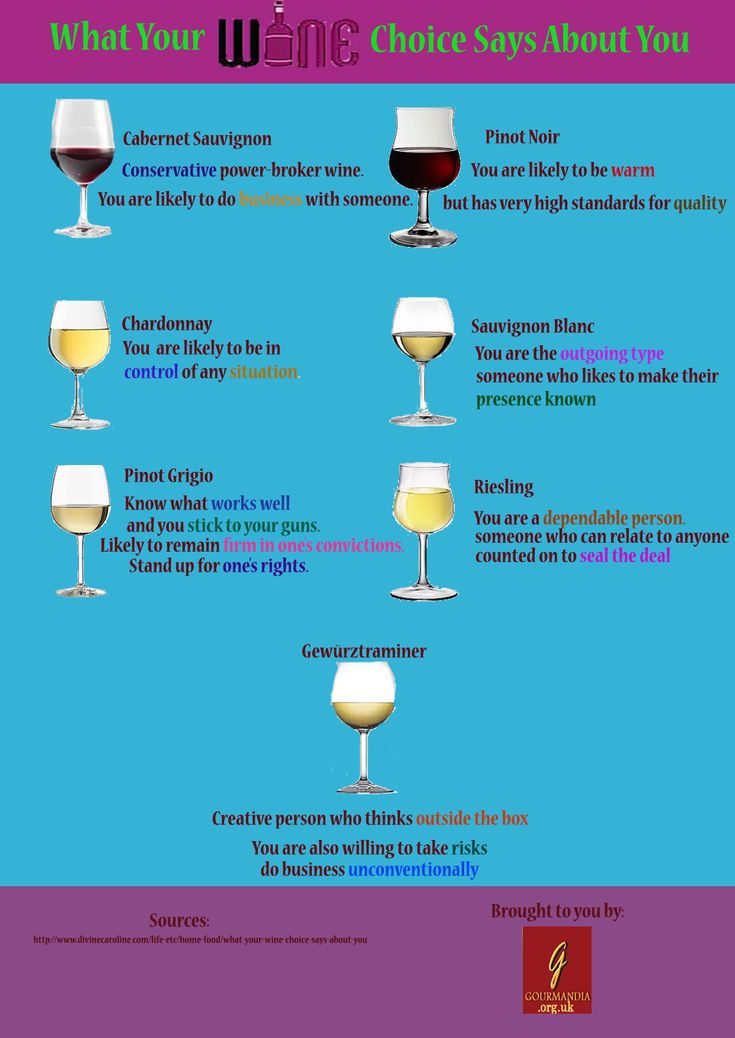 Their attentiveness to their surroundings gives them an intense, observant quality. They act quickly in response to incoming information and usually have quick reflexes. Others are drawn to their enthusiasm and good humor and their sixth sense for fun, enjoyable experiences.
Their attentiveness to their surroundings gives them an intense, observant quality. They act quickly in response to incoming information and usually have quick reflexes. Others are drawn to their enthusiasm and good humor and their sixth sense for fun, enjoyable experiences.
Because ESTPs use both extraverted sensing and introverted thinking they are highly attentive to details in their environment and also have a gift for trouble-shooting, weighing pros and cons, and thinking critically.
Healthy ESTPs are seen as:
– Friendly, fun-loving, and energetic
– Adventurous and daring
– Logical, realistic, and attentive
Unhealthy ESTPs are seen as:
– Focusing entirely on excitement and fun at the expense of their responsibilities and obligations.
– Being unable to see the broader implications of their decisions.
– Overly direct and insensitive to the emotions and concerns of others.
ISFPs are seen as unassuming, authentic, and adaptable.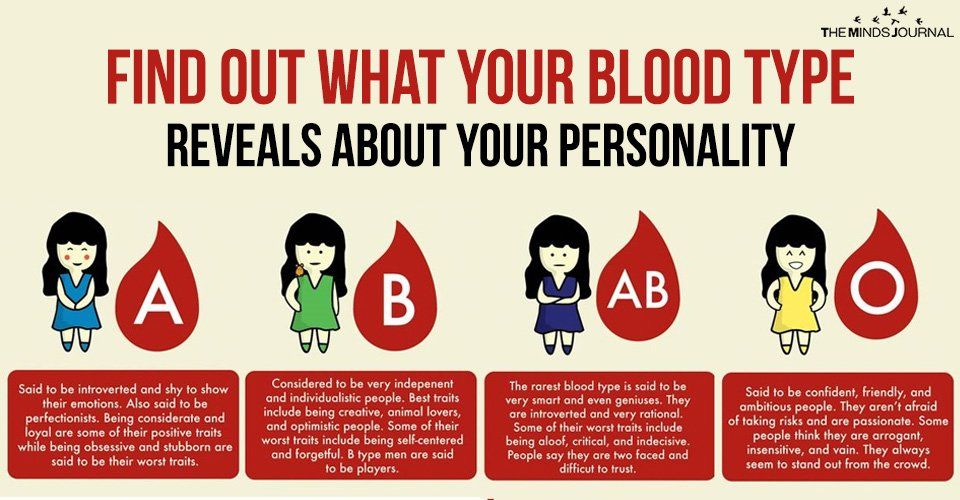 People appreciate their sincerity and gentleness and are often drawn to their sense of humor. They tend to appear difficult to know well because they keep many of their values held close to the chest, only sharing them with those who’ve earned their trust.
People appreciate their sincerity and gentleness and are often drawn to their sense of humor. They tend to appear difficult to know well because they keep many of their values held close to the chest, only sharing them with those who’ve earned their trust.
Because ISFPs are introverted feeling and extraverted sensing types, they combine a need for authenticity and “keeping it real” with a desire for adventure and exploration. They enjoy taking life as it comes and being open to any opportunity that comes their way. As a result, they dislike overly-structured lifestyles or being “caged in” by a lot of rules. They also have very little patience for phoniness and people-pleasing or manipulative behaviors.
Healthy ISFPs are seen as:
– Gentle, sensitive, and empathetic
– Observant, realistic, and practical
– Adaptable, flexible, and spontaneous
Unhealthy ISFPs are seen as:
– Self-critical and overly withdrawn
– Rejecting of logical systems and rules
– Focusing entirely on the current moment without seeing the long-term implications
ISTPs appear observant, logical, and adaptable.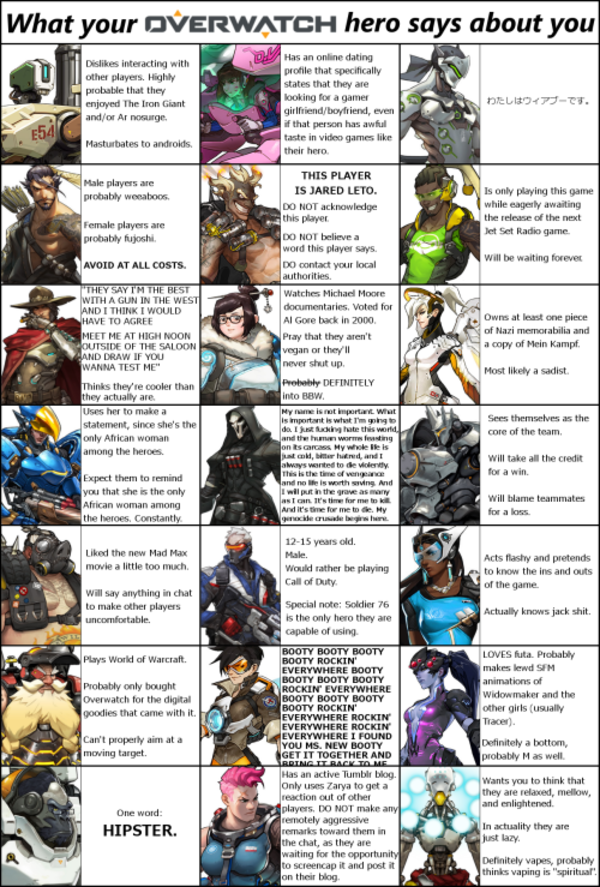 They seem to have a confidence that comes from within and a calm ability to handle whatever life throws at them. They don’t feel the need to impose their will on others or win arguments unless their principles are being devalued or someone’s logic is incredibly poor. Overall, they keep a lot of their judgments internalized – they don’t feel the need to quibble with others over their flawed opinions. They tend to have a good sense of humor, which people are drawn to, but many find that they are hard to read or to know well.
They seem to have a confidence that comes from within and a calm ability to handle whatever life throws at them. They don’t feel the need to impose their will on others or win arguments unless their principles are being devalued or someone’s logic is incredibly poor. Overall, they keep a lot of their judgments internalized – they don’t feel the need to quibble with others over their flawed opinions. They tend to have a good sense of humor, which people are drawn to, but many find that they are hard to read or to know well.
Because ISTPs use a mental process called extraverted sensing, they like having their options open and being adaptable to whatever life gives them. They will appear disgruntled and frustrated if they are micro-managed or limited by a lot of external rules and regulations.
Healthy ISTPs are seen as:
– Adaptable, realistic, and observant
– Logical, tactical, and efficient
– Independent, self-determined, and adventurous
Unhealthy ISTPs are seen as:
– Cynical, pessimistic and/or critical
– Impatient of the needs and emotions of others
– Focused on immediate results without looking at the long-term ramifications of their decisions.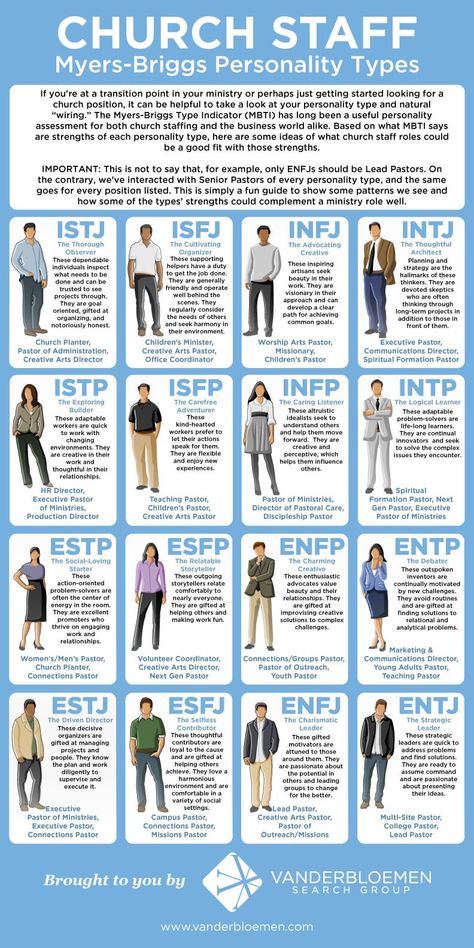
ESFJs usually appear friendly, outgoing, and organized. They tend to dress appropriately for the occasion and are usually on time and punctual. They are nearly always polite and empathetic, skilled in the art of hosting and making people feel “at home” with them. They seem to have an innate knowledge of what makes people feel comfortable.
ESFJs greatly value family and social connections and traditions. They enjoy rituals that commemorate favorite experiences and memories – things like annual excursions, dinners, or vacations. They like planning these experiences out and go to a lot of work to make sure everyone’s needs are met.
Healthy ESFJs are seen as:
– Sociable, energetic, and empathetic
– Organized and attentive
-Committed to preserving favored traditions and memories
Unhealthy ESFJs are seen as:
– Overly controlling and meddling
– Overly sensitive, assuming there was ill-intent where there was none.
– Unwilling to see alternative ways of doing things. Must do things their way.
ESTJs are usually seen as take-charge, “tell-it-like-it-is” individuals. Because they are gifted at organizing people and managing projects and schedules, they tend to take a position of authority relatively quickly. Some people appreciate this while others find them overpowering or controlling. They are usually outgoing, friendly, and detail-oriented.
ESTJs take their responsibilities and commitments seriously, and this is something that others will notice about them quickly. They don’t shirk their duties and can’t abide others who do so. It’s important to them to make their community a better place and they don’t mind taking charge and organizing people to achieve shared goals.
Healthy ESTJs are seen as:
– Practical, realistic, and self-confident.
– Conscientious and responsible
– Logical, analytical, and objective
Unhealthy ESTJs are seen as:
– Overly controlling or “know-it-alls”
– Rigid, and nitpicky about details
– Unwilling to try to new alternatives or solutions, must do things “their way”.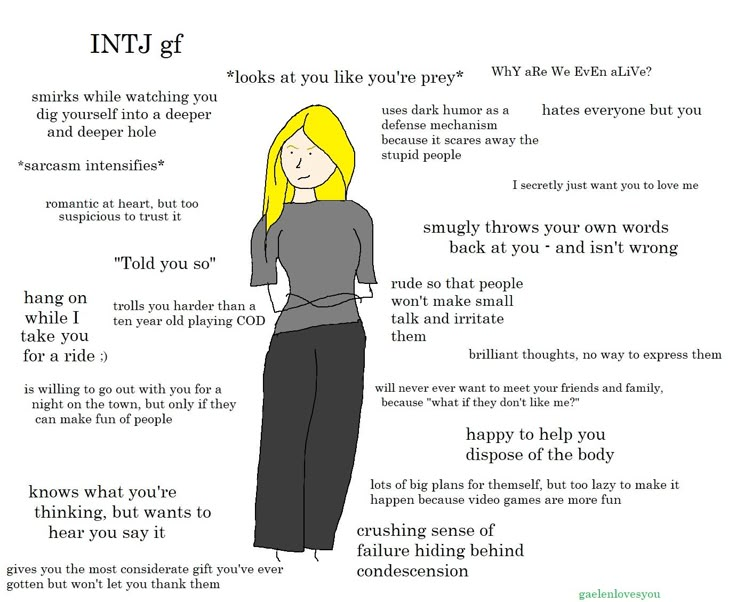
ISFJs usually appear unassuming, kind, and considerate. They are very aware of the practical needs of the situation and the people around them. They tend to go out of their way to make people comfortable and will often put others needs ahead of their own. While they are usually non-confrontational, they can be very quick to challenge people that are insensitive or rude to their loved ones. They are fiercely protective of their families and friends.
As introverted sensing types, ISFJs enjoy having consistency and will appear dependable and routine-oriented. They like to be prepared and to have all the details. Because of this, they tend to exude a cautious, focused demeanor. They enjoy preserving traditions and recalling positive memories and experiences.
Healthy ISFJs are seen as:
– Serious, conscientious, and empathetic
– Responsible and protective of others
– Dependable, detail-oriented, and planful
Unhealthy ISFJs are seen as:
– Rigid and overly dependent on their routine.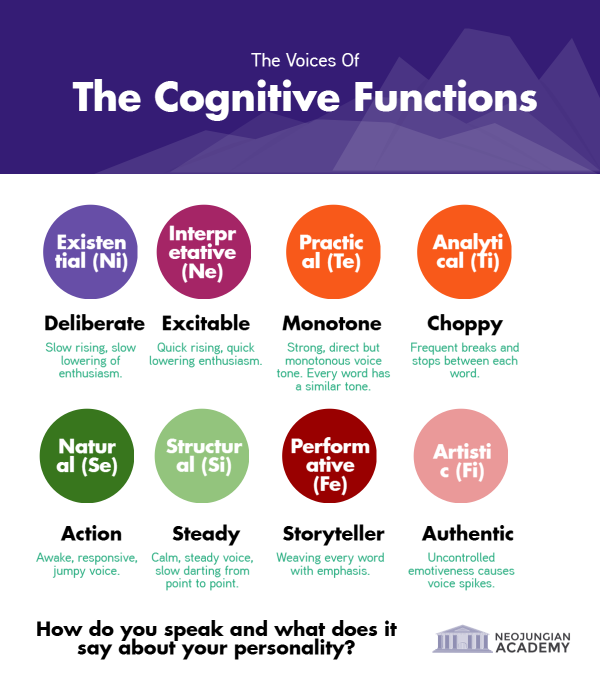 Unwilling to try new things.
Unwilling to try new things.
– Incapable of taking care of their own needs because they are so busy taking care of others.
– Resentful and complaining, frustrated with being “the responsible one”.
ISTJs are seen as pragmatic, responsible, and private. They are creatures of habit and usually have a steady routine and a consistent lifestyle. They tend to appear stable, calm, and grounded – nothing seems to surprise them and they enjoy being prepared for whatever happens next. They take their commitments seriously and others appreciate their honesty and reliability.
As introverted sensing types, ISTJs enjoy knowing what’s going to happen and having a plan. They don’t like having to deal with people who are wishy-washy, forgetful, or unreliable. They may seem annoyed or especially reserved if they are surrounded by people who are like this on a regular basis.
Healthy ISTJs are seen as:
– Serious, conscientious, and responsible
– Logical and objective
– Reflective, reasonable, and careful
Unhealthy ISTJ are seen as:
– Rigid about time, schedules, and doing things “by the book”
– Critical and judgmental
– So focused on logic that they forget to consider the feelings and needs of others.
What are Your Thoughts?
Do you have any feedback for us? Let us know in the comments! You can also follow me (Susan) on Facebook, Twitter, or Pinterest!
Find out more about your personality type in our eBook, Discovering You: Unlocking the Power of Personality Type.
- More
Personality types | 16Personalities
Analysts
Strategist
INTJ-A / INTJ-T
Imaginative, strategic thinkers with a plan for all occasions.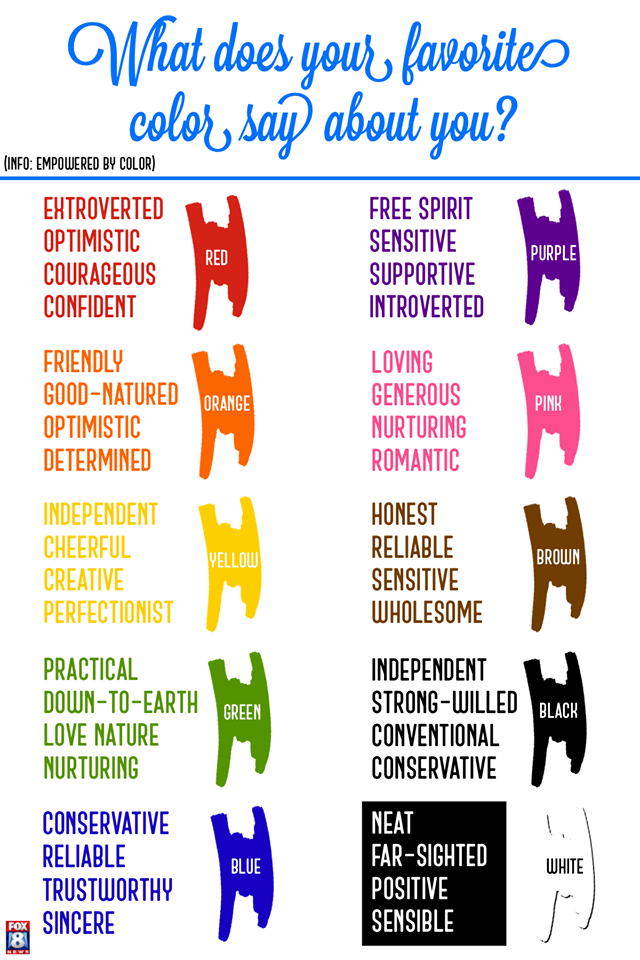
Scientist
INTP-A / INTP-T
Creative inventors, with a strong belief in the power of knowledge. nine0009
Commander
ENTJ-A / ENTJ-T
Brave, resourceful and strong-willed leaders who always find a way - or make a way.
Debater
ENTP-A / ENTP-T
Smart and curious thinkers who never turn down an intellectual challenge. nine0009
Diplomats
Activist
INFJ-A / INFJ-T
Quiet and mystical, but inspiring and relentless idealists.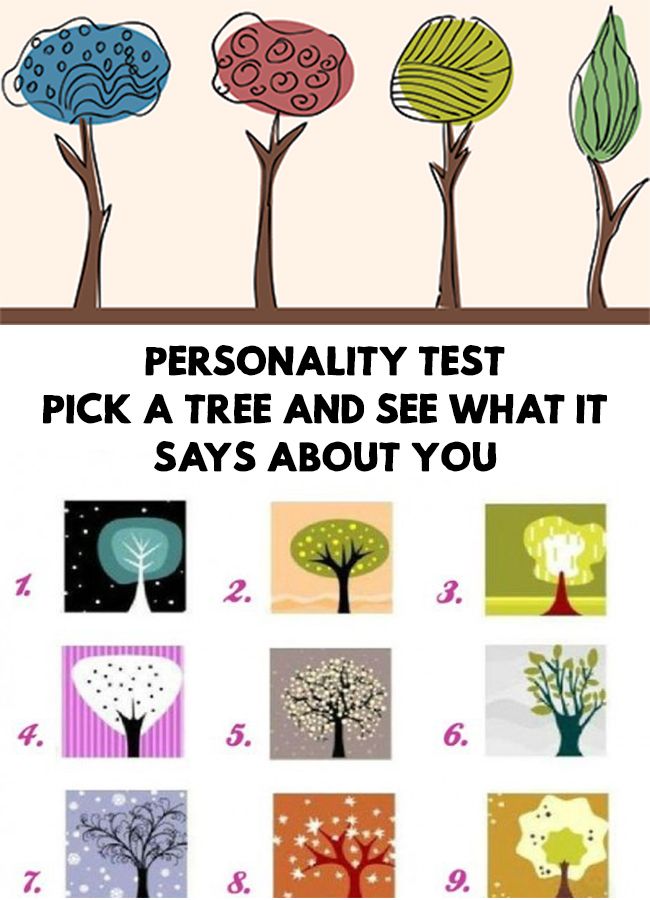
Broker
INFP-A / INFP-T
Poetic, kind and altruistic personalities, always ready to stand up for a good cause. nine0009
Trainer
ENFJ-A / ENFJ-T
Charismatic and inspiring leaders who captivate their listeners.
Wrestler
ENFP-A / ENFP-T
Enthusiasts, creative and sociable free minds who always find a reason to smile. nine0009
Guardians
Administrator
ISTJ-A / ISTJ-T
Practical and factual people whose reliability is unshakable.
Protector
ISFJ-A / ISFJ-T
Very responsible and kind protectors, always ready to protect their loved ones. nine0009
Manager
ESTJ-A / ESTJ-T
Excellent administrators, unsurpassed specialists in process and people management.
Consul
ESFJ-A / ESFJ-T
Extremely caring, sociable and popular people, always ready to help. nine0009
Seekers
Virtuoso
ISTP-A / ISTP-T
Brave and practical experimenters, masters of all kinds of techniques and tools.
Artist
ISFP-A / ISFP-T
Flexible and charming artists, always ready to explore and experience something new. nine0009
Dealer
ESTP-A / ESTP-T
Smart, energetic and very receptive people who truly enjoy risk.
Entertainer
ESFP-A / ESFP-T
Spontaneous, energetic and tireless merry fellows - where they are, it's never boring. nine0009
What your personality type says about your career success
Everyone has heard of the MBTI (Myers-Briggs) or the Enneagram, and maybe even the language of love. While not all of them apply to work—learning your team's love language can help you quickly figure out how to make them feel needed and appreciated—they still help you identify and understand what helps you perform best. Although Sally Hogshead is less well-known, her "How to Charm" personality test shows the opposite. Instead of showing you ways to better understand yourself, this personality test reveals what intrigues other people about you.0009
This can help in many ways as it will quickly teach you how to market yourself based on your primary and secondary advantage types. There are 49 archetypes in total between these two benefits, but don't let that overwhelm you. Credit.com has shared how to look at these different personality types from a high perspective to help you succeed at work.
For example, if you are a person who intrigues people with mystique, people find you interesting because you are often thoughtful and take time to think before you speak. Your ability to listen is what creates an impact, which is why you are perfect for the role of a doctor, CTO or even a writer like J.K. Rowling! On the contrary, if you intrigue people with force, people are often drawn to you because of your confidence and conviction, which makes you an excellent candidate for coaching or advocacy.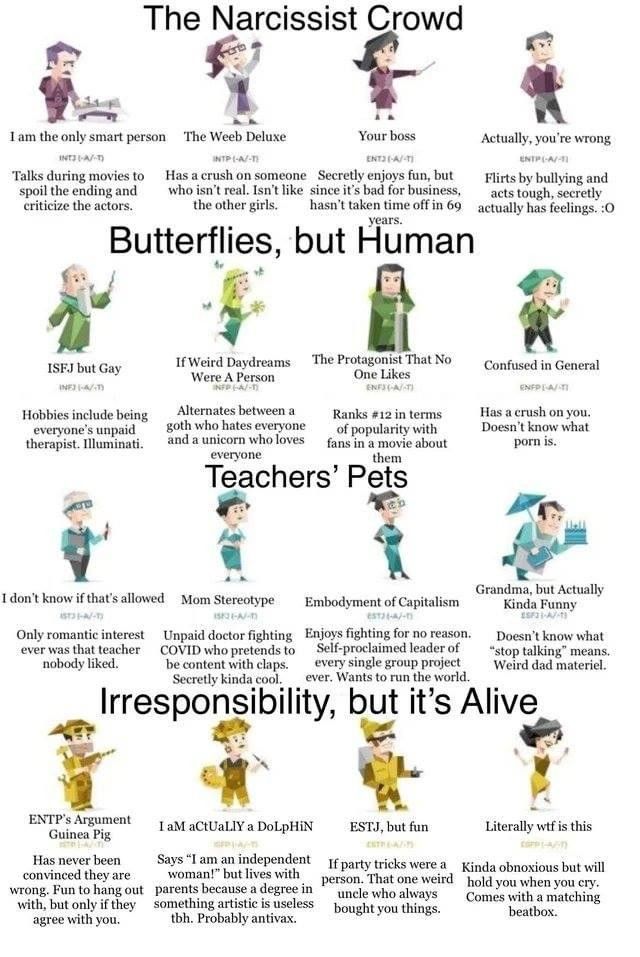 nine0009
nine0009
While it may seem like this skill can only be used when you're ;trying to-sell yourself-in an interview, it actually comes in handy in your day-to-day work as well. If someone asks you for your opinion on something, think about how you captivate people.
For example, if passion is your main asset, you can convince a colleague of the need to implement your idea or even your boss by standing up for what you care about the most. If you're the kind of person whose advantage is trust, then use tried and true methods that you know work to convince people. Or, if you intrigue people with mystique, there is nothing more interesting than taking the time to answer a question, pausing and thinking before you speak. This will immediately convince the other person that you took the time to understand what they are asking and give them the best answer! nine0009
Of course, before you know how best to approach any situation at work, you also need to make sure you know which skill is primary and which is secondary.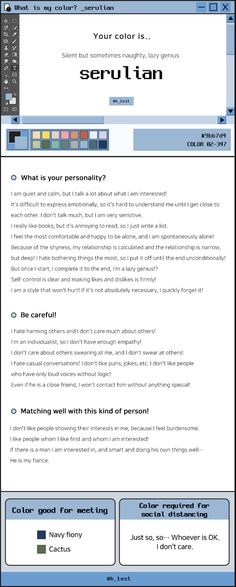 A primary skill is something you manage, so when you first learn about how you charm, you may think it is the most pronounced part of your personality. The secondary advantage you have may be more subtle, so the results of the quiz may surprise you at first, but take the time to think about how you approach meeting new people, how you sell yourself in an interview, or what you value about yourself, and that's it. may point to your secondary advantage. nine0009
A primary skill is something you manage, so when you first learn about how you charm, you may think it is the most pronounced part of your personality. The secondary advantage you have may be more subtle, so the results of the quiz may surprise you at first, but take the time to think about how you approach meeting new people, how you sell yourself in an interview, or what you value about yourself, and that's it. may point to your secondary advantage. nine0009
While it is helpful to know what is primary and secondary, knowing how they work in tandem can be most revealing. For example, if your primary trait is innovation and your secondary trait is cryptic, then your two primary languages of communication would be creativity and listening. This makes you a provocateur archetype, meaning you value cutting-edge thinking and creativity, but also tend to intrigue with understatement and subtle style. Use this to your advantage in the workplace by changing small details in a project to give it a new direction and surprise your manager and colleagues.




